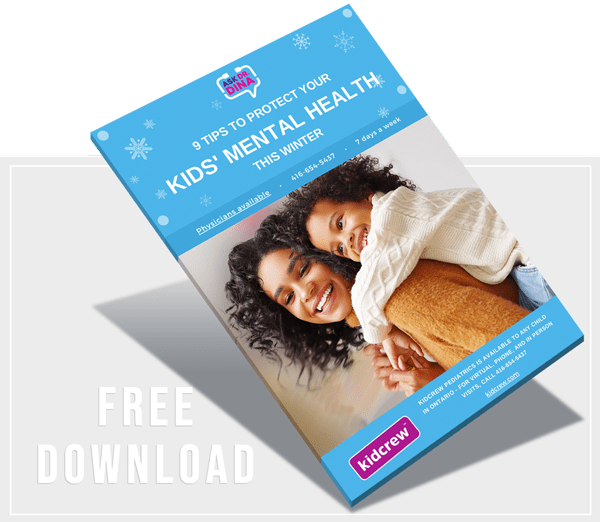How can virtual care address your child’s mental health concerns?
Digital technology has changed how patients receive care, from how illnesses are managed, routine visits are provided and how children receive care for mental health, developmental and behavioural concerns. Virtual health care refers to visits between a healthcare provider, such as a physician, and a patient through electronic communication technology.
Video and audio technology through phones, computers or tablets, allow clinicians to see or discuss a health concern with a patient without being in the same room. These virtual meetings occur in real-time but from different locations.
Some virtual visits take place by phone, where a clinician and a patient discuss health problems with only audio functionality. With video virtual visits, the patient and the clinician have an appointment with the use of video and audio technology.
Virtual care has increased significantly
We have seen a significant increase in the use of virtual visit technology in recent years. It can be used for initial patient consultations, routine medical visits and to review investigation reports, diagnoses and treatment options. Virtual visits allow clinicians to check in with patients in an easy and efficient way, without the patient needing to leave their home or workplace.
Virtual care allows a health care provider to diagnose and treat common ailments remotely.
Virtual care can also be used to monitor situations or health problems like high blood pressure or medication changes.
Brief check-ins with the clinician can ensure illnesses can be caught quickly and treatment is effective, with less delay in care.
Virtual healthcare enables the delivery of expert patient care while avoiding the expense, burden and time spent travelling and waiting in clinician’s offices. It also enables the provision of care in remote or underserviced communities when access to practitioners can be challenging.
There is a growing burden of mental health concerns amongst patients.
Mental health and therapy services can be difficult to access, especially in remote or underserviced areas.
Children’s mental health can be addressed through virtual care with expert mental health professionals, while reducing wait times and waiting lists, while minimizing the concern with stigma in attending a mental health care institution.
Download this free resource – 9 Tips To Help Protect Your Kids’ Mental Health
Virtual care eliminates long wait times
Many people wait several months to access their mental health care provider. As a result, patients often use the emergency department for non-emergency level care, such as for prescription refills and chronic concerns.
Parents miss work and children miss school to take their children to appointments. Virtual medicine allows many non-emergency visits to be replaced with virtual consultations, without decreasing the quality of care. It is fast and efficient and accessible.
Virtual Care and early intervention
Virtual care provides the opportunity to intervene earlier in the course of mental illness and provide ongoing treatment that is timely and convenient. As virtual care can be provided in a patient’s home, it is safe and there are fewer limitations with access to care.
Care can be responsive, with a focus on prevention, identification and intervention.
Virtual Care can be empowering
Many patients feel virtual care empowers them to seek care earlier and with fewer barriers to entry.
Patients using virtual mental care potentially have greater choice and control and are able to manage their own conditions more effectively. In addition, computerized interventions deliver services directly to patients without the necessity of a care provider at every touchpoint.
For example, guidelines from the United Kingdom now recommend that computerized cognitive behaviour therapy is offered as a first-line treatment for people living with mild to moderate depression.
What are some mental health resources?
Depending on where you live, there are various virtual mental health resources available to help your child and your family. Mental health professionals include psychiatrists, psychotherapists, psychologists, social workers and behavioral therapists. Some family physicians and pediatricians provide mental health care to children and families as well. Discuss available options with your health care provider.
What to do if you have concerns about your children’s mental health
It is always best to trust your instincts as a parent. If you have concerns about your child’s mental health, please discuss with your child’s health care provider. If you are concerned that your child has a low mood, anxiety, or other mental health concerns, and it is persistent, out of character or impairing your child’s daily function, it is best to review with your healthcare provider.
If you have any safety concerns, please discuss with your physician immediately, or seek urgent care in an emergency room.
XO













